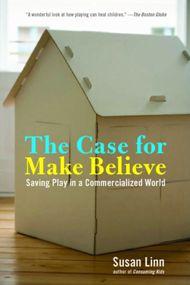Play is essential for children! Kids play alone, with siblings, friends—and with their parents. This book is about parent-child play. I loved reading Attachment Play: How to solve children’s behavior problems with play, laughter, and connection. I wish the subtitle could have been even longer, acknowledging the preventative aspect of play: How to prevent or solve…. As the author, Dr. Aletha Solter says, play can foster cooperation and increase happiness.
This is a great resource for any parent (or grandparent) looking for guidance and ideas about playing with children. Don’t worry—no one is suggesting that you need to spend hours a day playing with your child. Let this book inspire you to play a little more. Read it to gain insight into the power of play and learn some guiding principles from an expert who has helped parents and children for decades. The rewards will be worth it! Exercising your play muscles will bring more laughter and joy to everyday life. It will also prepare you to help your child through difficult situations.
Dr. Aletha J. Solter is a developmental psychologist who studied with Jean Piaget in Switzerland, and later earned her Ph.D. at the University of California. She is the founder of the Aware Parenting Institute and author of several other books about parents and children.
The book is organized into three sections, with examples of parent-child play throughout. The first section offers insights into different types of play and how it can strengthen parent-child attachment. In the second section Dr. Solter explains how playing with a child can help to solve behavior problems. And in the third section, she shows how parents can use play, laughter and connection to help children deal with hardships—or prepare for upcoming events such as the birth of a sibling, a medical procedure or beginning school.
Dr. Solter offers reassurance to parents in the chapter “When You Find it Hard to Play.” She writes, “Remember that it’s never too late to initiate attachment pay even if you missed opportunities to play with your children in the past. Remember, too, that the more you play with your children, the more skilled you will become, and the more you will enjoy it. You and your children will begin to feel more connected, and your power struggles will decrease.”
Attachment Play includes information about research on play in an Appendix, as well as Summary Charts of the Nine Forms of Attachment Play, which is useful as a quick reminder/inspiration.

